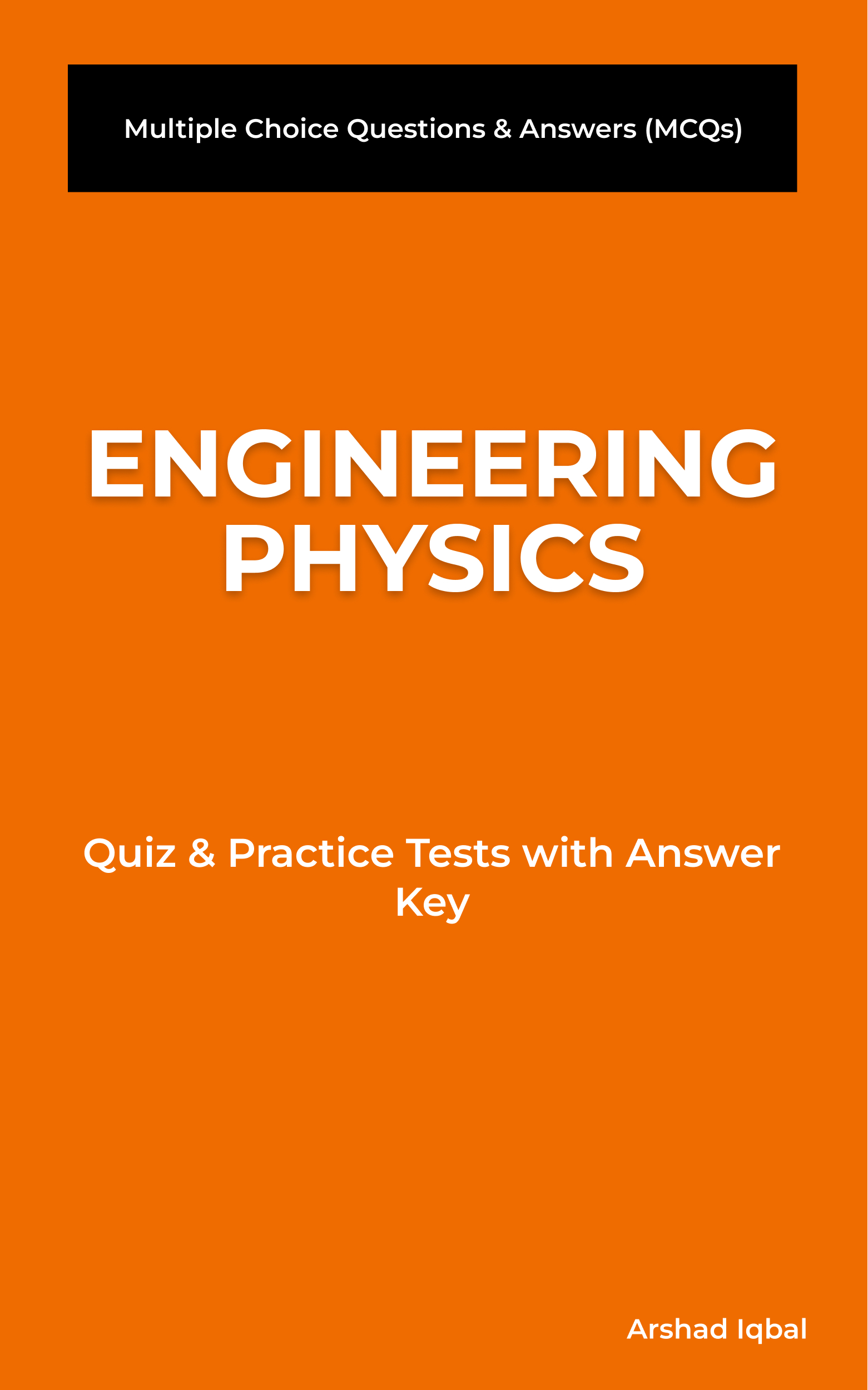Engineering Physics Online Tests
Speed of Traveling Wave MCQ (Multiple Choice Questions) PDF Download
The Speed of Traveling Wave Multiple Choice Questions (MCQ Quiz) with Answers PDF (Speed of Traveling Wave MCQ PDF e-Book) download to practice Engineering Physics Tests. Learn Transverse Waves Multiple Choice Questions and Answers (MCQs), Speed of Traveling Wave quiz answers PDF for online certificate programs. The Speed of Traveling Wave MCQ App Download: Free learning app for transverse and longitudinal waves, wavelength and frequency, types of waves test prep for undergraduate engineering schools.
The MCQ: If a wave traveling along a string is y(x,t)=0.0032sin(72.1x-2.72t), in which numerical constants are in SI units i.e. 0.0032m, 72.1rad/m and 2.72rad/s, then amplitude of wave is; "Speed of Traveling Wave" App Download (Free) with answers: 0.0032 m; 72.1 m; 2.72 m; 2.37 m; for online certificate programs. Practice Speed of Traveling Wave Quiz Questions, download Google e-Book (Free Sample) for online college admission.
Speed of Traveling Wave MCQs: Questions and Answers PDF Download
If a wave traveling along a string is y(x,t)=0.0032sin(72.1x-2.72t), in which numerical constants are in SI units i.e. 0.0032m, 72.1rad/m and 2.72rad/s, then velocity of wave is
- 2 m/s
- 0.32 m/s
- 0.037 m/s
- 0.023 m/s
If a wave traveling along a string is y(x,t)=0.0032sin(72.1x-2.72t), in which numerical constants are in SI units i.e. 0.0032m, 72.1rad/m and 2.72rad/s, then amplitude of wave is
- 0.0032 m
- 72.1 m
- 2.72 m
- 2.37 m
If a wave traveling along a string is y(x,t)=0.0032sin(72.1x-2.72t), in which numerical constants are in SI units i.e. 0.0032m, 72.1rad/m and 2.72rad/s, then period of wave is
- 1.45 s
- 2.31 s
- 15.34 s
- 0.5 s
If a wave traveling along a string is y(x,t)=0.0032sin(72.1x-2.72t), in which numerical constants are in SI units i.e. 0.0032m, 72.1rad/m and 2.72rad/s, then wavelength of wave is
- 0.0871 m
- 0.0032 m
- 0.433 m
- 3.77 m
Rate at which transverse velocity of element is changing, is termed as
- transverse acceleration
- angular acceleration
- constant acceleration
- none of above
Engineering Physics Practice Tests
Speed of Traveling Wave Textbook App: Free Download (Android & iOS)
The App: Speed of Traveling Wave MCQs App to study Speed of Traveling Wave Textbook, Engineering Physics MCQ App, and Digital Electronics MCQ App. The "Speed of Traveling Wave" App to free download iOS & Android Apps includes complete analytics with interactive assessments. Download App Store & Play Store learning Apps & enjoy 100% functionality with subscriptions!
